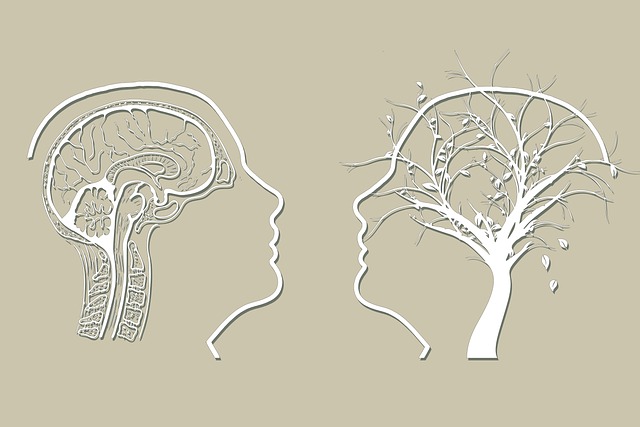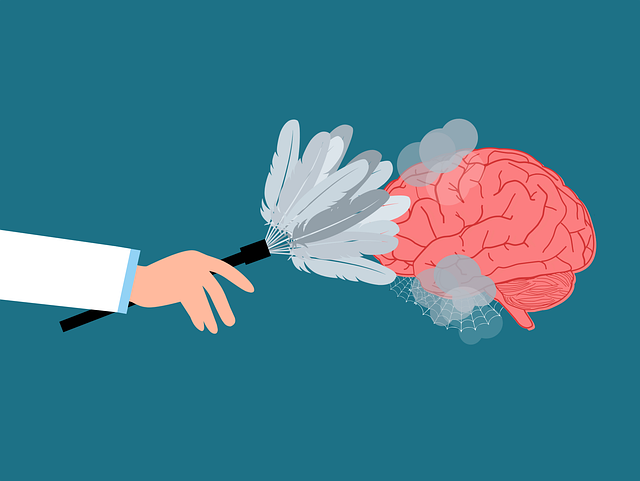Risk assessment is integral to successful mental health practice, particularly within the framework of Parker Anger Management Therapy (PAMT). Mental health practitioners use diverse methods like structured interviews and questionnaires to understand clients' individual and environmental factors contributing to anger issues. Integrating these approaches allows for tailored interventions, creating safe spaces for emotional exploration and enhancing healing. PAMT is a proactive measure for managing anger, reducing healthcare provider burnout, and fostering self-awareness and resilience in mental health professionals. Robust risk management strategies, including regular assessments using Mind Over Matter Principles, are crucial for continuous monitoring and mitigation, ensuring client and practitioner safety while supporting therapeutic goals.
Mental health professionals constantly face risks from vulnerable clients, making robust risk management planning crucial. This article guides practitioners through essential aspects of managing these risks effectively. We explore the foundational concept of risk assessment in mental health practice and delve into practical strategies like implementing Parker Anger Management Therapy for proactive mitigation. Furthermore, continuous risk monitoring techniques are discussed to ensure a dynamic, safe working environment. By adopting these methods, professionals can enhance client care while minimizing potential hazards.
- Understanding Risk Assessment in Mental Health Practice
- Implementing Parker Anger Management Therapy as a Proactive Measure
- Strategies for Continuous Risk Monitoring and Mitigation
Understanding Risk Assessment in Mental Health Practice

Risk assessment is a cornerstone of effective mental health practice, enabling professionals to anticipate and mitigate potential risks to clients’ well-being. In the context of Parker Anger Management Therapy (PAMT), risk assessment involves meticulously evaluating factors that could contribute to or escalate anger-related issues. This process encompasses not just individual client assessments but also considering broader environmental and social influences. Mental health practitioners utilize various tools and techniques, such as structured interviews and standardized questionnaires, to gather comprehensive data about clients’ histories, current circumstances, and potential triggers for anger.
Integrating a Community Outreach Program Implementation approach within risk management enhances the holistic understanding of clients’ lives, identifying external stressors that might impact their mental wellness. Self-Awareness Exercises and Mental Wellness Journaling Exercise Guidance can also play pivotal roles in risk assessment by promoting client introspection and self-reporting. These exercises foster open communication, allowing practitioners to gain deeper insights into clients’ emotional states, thought patterns, and potential risk factors. By combining these methods, mental health professionals can make informed decisions tailored to each client’s unique needs, ensuring safer and more effective therapeutic interventions.
Implementing Parker Anger Management Therapy as a Proactive Measure

Implementing Parker Anger Management Therapy (PAMT) can serve as a powerful proactive measure in mental health settings. This evidence-based approach is designed to help clients manage and reduce anger, a fundamental aspect often overlooked but significantly contributing to burnout among healthcare providers. By integrating PAMT into practice, mental health professionals can foster a safe space for individuals to explore and express their emotions, particularly in the context of challenging interactions or personal struggles.
The benefits extend beyond individual client improvement. Incorporating strategies from PAMT into burnout prevention strategies for healthcare providers can lead to enhanced emotional healing processes and improved resilience. This approach encourages self-awareness, promotes inner strength development, and enables professionals to better navigate the emotional demands of their work. As a result, it can contribute to a more sustainable and fulfilling career in mental health care.
Strategies for Continuous Risk Monitoring and Mitigation

Mental health professionals face unique challenges when it comes to risk management due to the sensitive nature of their work. Implementing robust strategies for continuous risk monitoring and mitigation is essential, drawing on evidence-based practices like those offered by Parker Anger Management Therapy. This dynamic approach involves regular, thorough assessments of client risks, integrating Mind Over Matter Principles to foster emotional well-being promotion techniques that enhance clients’ ability to regulate their emotions.
By adopting these methods, professionals can proactively identify potential triggers and vulnerabilities, implementing timely interventions. This proactive stance not only ensures the safety of both clients and practitioners but also fosters a more supportive therapeutic environment. Through ongoing monitoring, mental health experts can adapt treatment plans, incorporating Emotional Regulation strategies tailored to individual client needs, thereby enhancing overall risk mitigation efforts.
Risk management planning is an indispensable tool for mental health professionals, ensuring safe and effective practice. By understanding risk assessment, implementing proactive measures like Parker Anger Management Therapy, and adopting continuous monitoring strategies, practitioners can mitigate potential hazards and foster positive outcomes for their clients. This comprehensive approach not only protects professionals and their practices but also enhances the quality of care provided, ultimately benefiting those in need.














